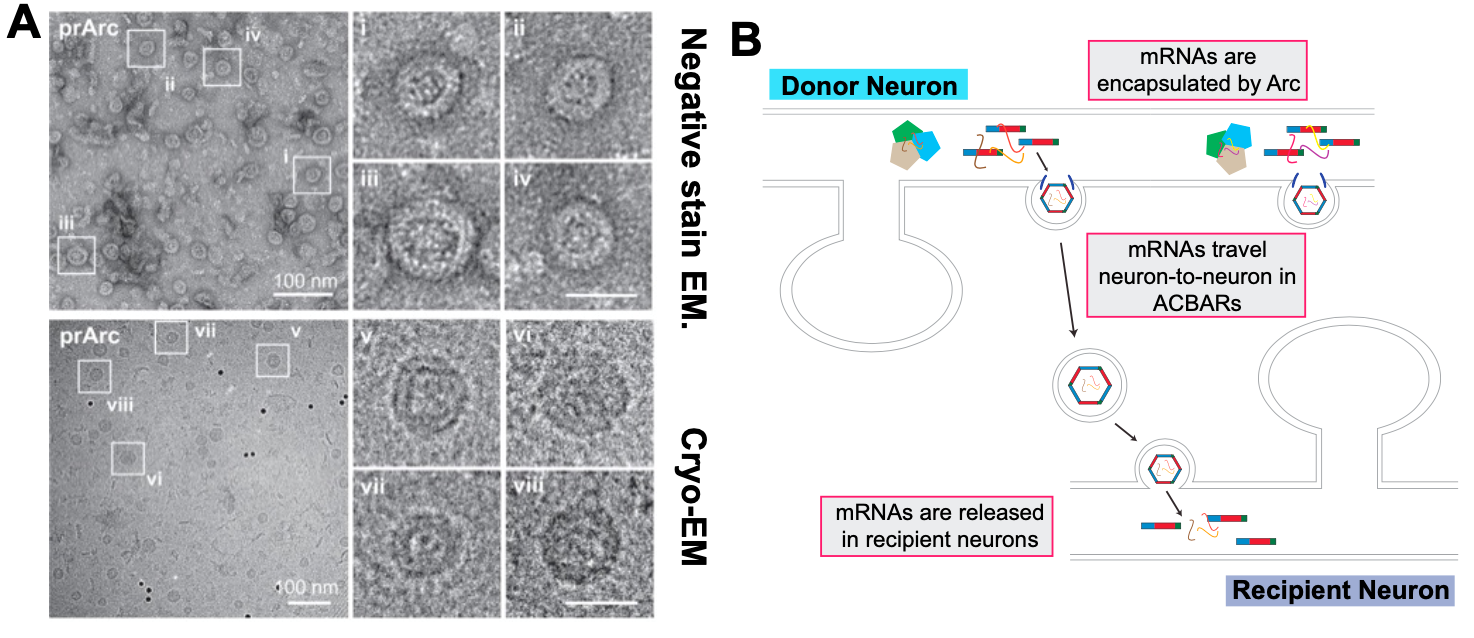
How can cells in the brain retain information for years, even though most proteins turn over in minutes to days? The neuronal gene Arc is critical for transducing experience and learning into long-lasting changes in the brain.
Shepherd and colleagues found that the Arc gene is derived from a family of retrotransposons, and that the Arc protein can self-assemble into virus-like capsids that are released from neurons in membrane-enclosed vesicles that transfer RNA and proteins cell-to-cell. These findings open a new area of investigation in the cell biology of cell-to-cell communication and mechanisms of brain plasticity by uncovering a novel intercellular communication pathway that resembles retrovirus biology.

References

The neuronal gene Arc encodes a repurposed retrotransposon Gag protein that mediates intercellular RNA transfer. Pastuzyn ED, Day CE, Kearns RB, Kyrke-Smith M, Taibi AV, McCormick J, Yoder N, Belnap DM, Erlendsson S, Morado DR, Briggs JAG, Feschotte C, Shepherd JD. Cell. 2018 Jan;172(1-2):275.
Press Releases and Media:

University of Utah Health: “Surprise: A Virus-Like Protein is Important for Cognition and Memory”

